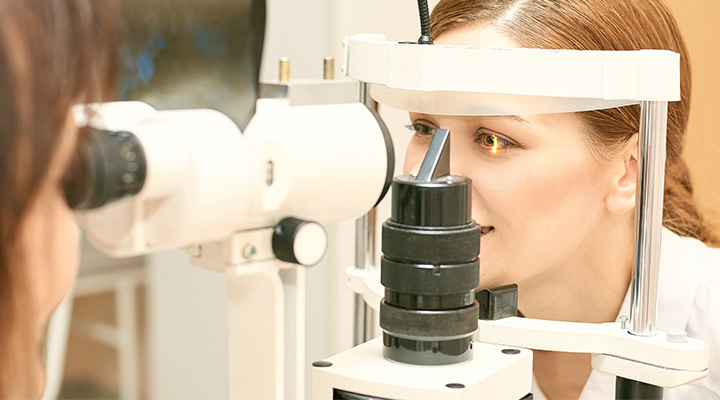Thyroid Diseases Require Careful Eye Examination


Thyroid diseases can have a negative effect on the eyes, like many organs in the body. Emphasizing that serious eye problems may be encountered that may cause permanent vision loss if not treated, Ophthalmology Specialist and Faculty Member Dr. Yasin Özcan underlined that postoperative eye examination should not be disrupted, especially.
Diseases related to the thyroid gland can be accompanied by sweating, palpitations, irritability and hair loss or growth in the eyeballs, damage and inflammation due to compression of the optic nerve, decreased vision, impaired movement of the eyes, and double vision, which are caused by the increase in thyroid hormone levels in the blood. Although this situation is usually controlled with drug therapy, in patients who do not respond to drug therapy, surgical removal of either the whole or a part of the thyroid gland can be controlled.
It is necessary to pay attention to the changes in the eyes after total thyroidectomy, that is, operations in which the thyroid gland is completely removed due to thyroid-related diseases or thyroid gland tumors. Yeditepe University Hospitals Ophthalmology Specialist and Faculty Member Dr. Yasin Özcan claimed that the most important determining factor in eye problems that may occur after thyroid surgery is the duration of low calcium levels due to parathormone insufficiency. He pointed out that in cases where these problems are temporary, they rarely develop, and in cases lasting longer than six months, they develop more frequently. In addition to these, the patient's advanced age, presence of previous cataracts and smoking accelerated the emergence of these problems. Dr. Özcan continued, "If the patient has diseases that facilitate the formation of cataracts such as diabetes, kidney disease, or has a disease that requires long-term steroid use, eye problems may occur earlier”.
You can visit yeditepehealthcare.org for the rest of the news...
Press Reflections: raillynews.com